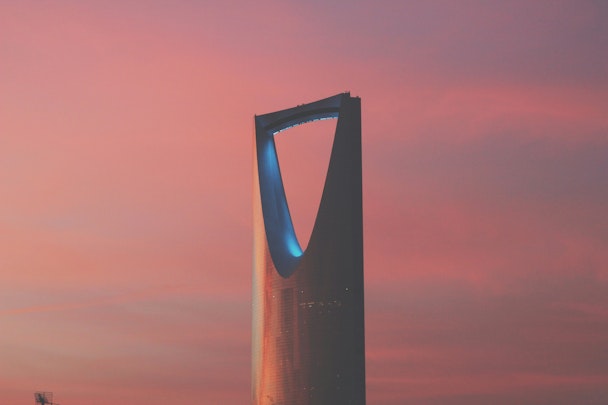Saudi Arabia’s film and sports investments have attracted criticism – and advertisers
Saudi Arabia’s entertainment investments have been labeled sportswashing. That isn’t putting off advertisers doing business in the country.

Saudi Arabia has poured money into sports and entertainment ventures in recent years / Unsplash
Before California acted as the cradle of the global tech and film industries, its money was in oil. In 1918, almost 40% of American oil was produced in the state. But the Golden State also offered early filmmakers the chance to shoot a range of different pictures – from Westerns to Biblical epics – under consistent light and amid natural splendor that could stand in for Judea as well as Dodge. And thus Los Angeles – once a rowdy oil town – was recast as the showbiz capital of the world.
The government of Saudi Arabia, another locale rich in oil and sunshine, hopes to effect a similar transition. Saudi Arabia has invested heavily in its film industry in recent years, launching the Red Sea Film Festival in 2019 and putting aside $100m into a fund intended to boost production in the country.
It’s part of a wider pattern of entertainment investment by the Kingdom, which has brought both Formula One and WWE to Riyadh. Last year, it injected $1bn into the PGA Tour; since 2021, entertainment investments have totaled over $6bn.
Much of that cash has come directly from the state’s Public Investment Fund (PIF), in line with the goals of its Vision 2030 economic plan, which aims to move its economy away from fossil fuel extraction – and its global profile away from totalitarianism and towards tourism.
Azhar Siddiqui, managing partner of Mediaplus Middle East, tells The Drum: “Saudi Arabia's Vision 2030 places sports and entertainment at the heart of its economic diversification strategy… the country's substantial investments in sports infrastructure and hosting of high-profile international events have elevated its global profile, making it an attractive platform for brands seeking to tap into new and vibrant audiences.”
For brand marketers looking to reach the international middle classes, does any of this matter?
The Kingdom is the largest economy in the Middle East and host to a young population of some 36 million people, just short of California’s 39 million. That makes it a compelling target market for multinational brands looking for new sources of growth, despite allegations by Amnesty International and Human Rights Watch that its investments amount to ‘sportswashing’.
Well, according to agency execs working within the country, advertisers are biting. “Saudi’s focus on hosting and promoting the largest entertainment and sporting events has created numerous growth opportunities for brands within the marketing and advertising space,” says Adel Baraja, chief executive officer of Publicis Communications KSA.
“If we look at the sports industry, it wasn’t too long ago that sponsors were limited, and it was up to the clubs to offer creative sponsorship solutions to attract interest. The influx of world-class footballers and hosting some of the most important sporting events put a global spotlight on the Kingdom as a whole,” he adds. “This accelerated interest from private brands across a diversity of sectors including FCMG, automotive and retail who are now keen to have a presence.”
Siddiqui says that its entertainment and sports investments have “transformed the Kingdom into a dynamic market for new brands and advertising opportunities,” by creating new space for sponsorship and targeted advertising.
Media investment from brands is rising, says Baraja. So is the need for content produced within the country. “Saudi Arabia has always been a major media market with its young, tech-savvy population – more than 50% are under 30 years of age, but for many years much of the content was produced in other countries. When you consider that there is 85%-98% media penetration for both online and offline media platforms and the average Saudi spends 12.4 hours consuming media, there are tremendous opportunities for brands to connect with their audiences alongside the evolving number of media offerings available.”
Serviceplan, the German-headquartered agency network, has a major office in Dubai. Last year, it won its first industry award for a campaign produced in Saudi Arabia for a Toyota dealership.
Rami Hmadeh, managing partner at Serviceplan Arabia, says that it marks a “growing openness among brands within the country to invest in advertising.”
“This trend likely reflects an increasing recognition of the value of strategic advertising in driving brand awareness and engagement in a competitive market. As the country continues to embrace economic diversification and digital transformation, particularly under Vision 2030, brands seem more willing to allocate resources towards creative and impactful advertising strategies,” Hmadeh adds. He says the agency network is itself investing in the country, recruiting Saudi creatives.
“Local professionals offer an authentic voice and perspective that can significantly enhance the effectiveness of campaigns by ensuring they resonate on a cultural level. Moreover, this approach facilitates the development of strong local partnerships, essential for navigating the regulatory environment,” he says.
In California, ad agencies eventually followed filmmakers and starlets west. Saudi Arabia probably won’t be able to unseat Hollywood for film production, but brands will continue to look east anyway. Baraji says: ”As Saudi continues to tell its story to the world, brands are capitalizing on this global platform to explore innovative partnerships, diversify their audiences and enhance their brand image.”
Read more from The Drum’s special focus on the entertainment industry

